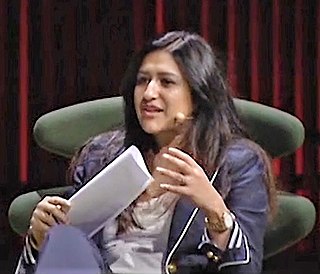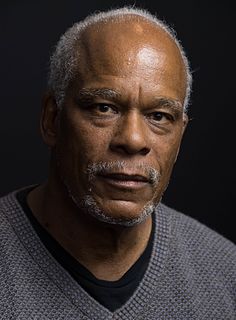A Quote by John Diamond
Until relatively recently, mass political movements were still about basic rights of food, shelter, education and self sufficiency. The reasons fewer people vote these days, or turn up for political meetings, is that for the vast majority of us those rights have been fulfilled. These days it's in the adverts for mobile phones or foreign holidays where phrases like "Join the Revolution!" and "Cry Freedom!" are bandied about for a generation which knows nothing of their provenance. Just as now we have luxury illnesses to replace real ones, so now we have luxury politics.
Quote Topics
About
Adverts
Basic
Basic Rights
Been
Cry
Days
Education
Fewer
Food
Foreign
Freedom
Fulfilled
Generation
Holidays
Illnesses
Join
Just
Knows
Like
Luxury
Majority
Mass
Meetings
Mobile
Mobile Phones
Movements
Nothing
Now
People
Phones
Phrases
Political
Political Movement
Political Movements
Politics
Real
Real Ones
Reasons
Recently
Relatively
Replace
Revolution
Rights
Self
Self Sufficiency
Shelter
Still
Sufficiency
These Days
Those
Turn
Until
Up
Us
Vast
Vast Majority
Vote
Were
Which
Related Quotes
Most brands that are called luxury brands today are not true luxury brands. The globalization of fashion and luxury means you now find the same luxury brands in every city. The stores look the same, the products are the same. It is still a very good quality product but it is now readily available to everyone. It's a kind of mass luxury.
Positive rights are the right to shelter, the right to education, the right to health care, the right to a living wage. These things are - these are, I would call them, more properly, political rights rather than positive rights. And they are extremely tricky, because now we are dealing with things that are zero sum.
Democracy is not freedom. Democracy is two wolves and a lamb voting on what to eat for lunch. Freedom comes from the recognition of certain rights which may not be taken, not even by a 99% vote. Those rights are spelled out in the Bill of Rights and in our California Constitution. Voters and politicians alike would do well to take a look at the rights we each hold, which must never be chipped away by the whim of the majority.
Buddhism doesn't really have much time for political mass-movements. We are so trained to think of politics in terms of acting collectively, acting as part of mass-movements, that it's become hard for us to imagine a form of politics that is based on a high degree of introspection and self-examination.
Take the US. Women were not even able to vote until 90 ago, at about the same time they gained the right in Afghanistan. Rights of former slaves were very limited until the 1960s, and in some ways still are. In these and other domains there has been progress in democracy, though still seriously flawed. In other dimensions - the control of concentrated wealth over the political process, for example, things have gotten much worse in recent years. And there is much more, in both directions.
Be ruthless about protecting writing days, i.e., do not cave in to endless requests to have "essential" and "long overdue" meetings on those days. The funny thing is that, although writing has been my actual job for several years now, I still seem to have to fight for time in which to do it. Some people do not seem to grasp that I still have to sit down in peace and write the books, apparently believing that they pop up like mushrooms without my connivance. I must therefore guard the time allotted to writing as a Hungarian Horntail guards its firstborn egg.
You just did a whole read-through. The lie that brought us into war was that Iraq was a threat to us. Well, now it is a threat. Now it is a terrorist hotbed. The fiction is now reality. And now we have to deal with it. It was an attempt at a corporate takeover. This was about oil. It wasn't about human rights. It's not about human rights.
You have to join every other movement for the freedom of people. Therefore join the movement as individuals against anti-Semitism, join the movements for the rights of Hispanics, the rights of women, the rights of gays. In other words, I think that each movement has to stand on its own feet because it has a particular agenda, but it can ask other people.
Majorities are of two sorts: (1) communal majority and (2) political majority. A political majority is changeable in its class composition. A political majority grows. A communal majority is born. The admission to a political majority is open. The door to a communal majority is closed. The politics of political majority are free to all to make and unmake. The politics of communal majority are made by its own members born in it.
I've had a chance to meet some of my civil rights heroes and, more recently, members of the young generation around [Barack] Obama, people in their teens and twenties who were determined to make history and who were too idealistic to think that what they were trying to do might be impossible. They proved that visionary pragmatism can win over the majority. That comes from a particular place in your heart that generation Y is offering America. They just can't afford to be naive now, in terms of the ferocity of the opposition.
We hear in these days a great deal respecting rights--the rights of private judgment, the rights of labor, the rights of property, and the rights of man. Rights are grand things, divine things in this world of God's; but the way in which we expound these rights, alas! seems to me to be the very incarnation of selfishness. I can see nothing very noble in a man who is forever going about calling for his own rights. Alas! alas! for the man who feels nothing more grand in this wondrous, divine world than his own rights.
Al-Hallaj has a special destiny. He came at a time when worldliness, the luxury, were inundating the Islamic world. His function was to act as kind of an antithesis to this, and he paid for it with his life, and he was very happy to do so. He smiled as he went to the executioner. That was done because it shook the conscience of the Islamic peoples of that time. But the vast majority, the vast, vast, vast majority of Sufis, they have not met the destiny of al-Hallaj. They have spoken about reaching "the Truth" and there is nothing dangerous about it.





































